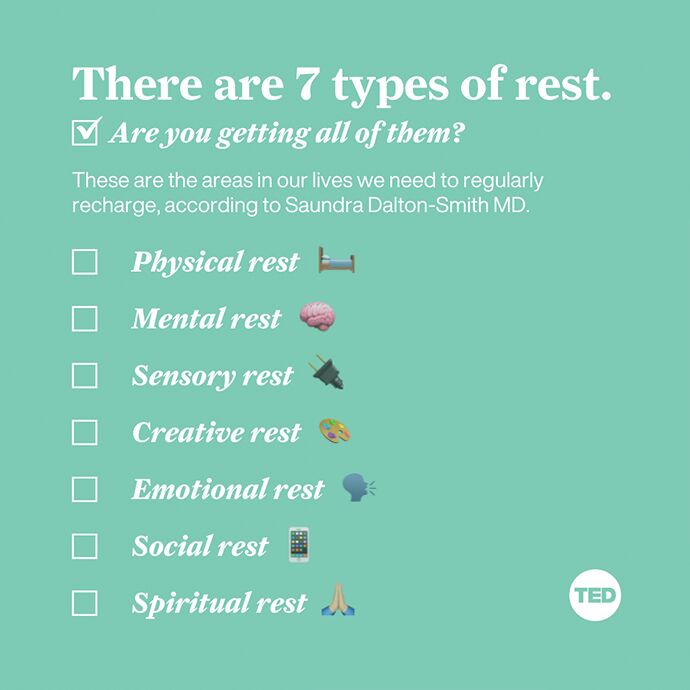In our fast-paced, modern lives, the demands of work, relationships, and daily responsibilities can leave us feeling drained and fatigued. In the pursuit of productivity, we often overlook the importance of rest and its role in maintaining overall well-being. According to Dr. Saundra Dalton-Smith, a renowned medical doctor, there are seven types of rest that are essential for recharging different aspects of our lives. By recognising and embracing these various forms of rest, we can achieve a more balanced and fulfilling existence. Let’s delve into each type to understand its significance and how to incorporate it into our daily routines.
Physical Rest
Physical rest involves allowing our bodies to recover and repair from the strains of everyday activities. This type of rest encompasses both sleep and periods of intentional relaxation. Quality sleep is vital for physical restoration, as it allows our muscles, organs, and tissues to heal. In addition to adequate sleep, taking breaks during the day, engaging in light exercise, and practising relaxation techniques can help maintain optimal physical well-being.
Mental Rest
Amidst the constant bombardment of information and stimuli, mental rest is crucial to prevent mental fatigue and burnout. Our minds need time to declutter and recharge. Activities such as meditation, mindfulness exercises, or simply spending time in nature can provide the mental respite necessary to enhance focus, creativity, and problem-solving abilities.
Sensory Rest
In our hyper-connected world, our senses are often overstimulated. Sensory rest involves limiting exposure to loud noises, bright lights, and constant screen time. By intentionally creating calm environments and reducing sensory inputs, we can alleviate sensory overload and find solace in the quiet moments that rejuvenate our minds.

Creative Rest
Engaging in creative pursuits can be fulfilling, but it can also be draining if we don’t allow ourselves time to replenish our creative wells. Creative rest involves stepping away from the pressures of producing and giving ourselves the freedom to explore, daydream, or enjoy art without expectations. This break from the creative process can reignite inspiration and enhance overall creativity.
Emotional Rest
Our emotions play a significant role in our overall well-being, and emotional rest is necessary for maintaining emotional balance. It involves acknowledging and processing our feelings, setting healthy boundaries, and seeking support when needed. By allowing ourselves to feel and release emotions without judgment, we create space for healing and emotional renewal.
Social Rest
Human connections are essential, but social interactions can also be draining, especially for introverts. Social rest involves taking time for solitude and reducing social engagements when needed. This doesn’t mean avoiding all social interactions but rather ensuring that the time spent with others is meaningful and energizing rather than overwhelming.
Spiritual Rest
Regardless of one’s religious beliefs, spiritual rest addresses the need for a sense of purpose and connection to something greater than oneself. This can be achieved through practices like prayer, meditation, spending time in nature, or engaging in activities that bring a sense of fulfilment and alignment with personal values.
In a world that glorifies busyness and productivity, it is easy to overlook the importance of rest. Dr. Saundra Dalton-Smith’s concept of the seven types of rest offers us a valuable framework for nurturing our well-being in various aspects of life. By prioritising physical, mental, sensory, creative, emotional, social, and spiritual rest, we can cultivate a more balanced, healthier, and happier life. Recognising that rest is not just a pause in our busy lives, but an essential aspect of personal growth and rejuvenation, we can embrace these forms of rest and experience the transformative power they bring to our lives. So, let us pledge to take a step back, recharge, and find renewal in the different types of rest to live more fulfilling and purpose-driven lives.










